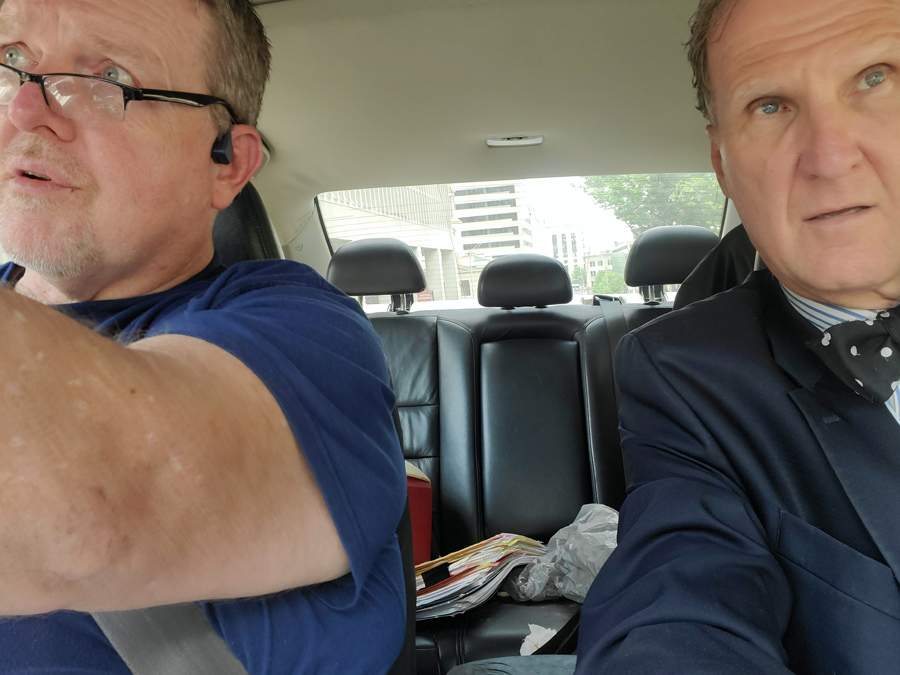
Christopher Sapp, left, is midstate bureau chief at the wheel of a car as we travel to the TN supreme court building at 401 Seventh Ave N. in Nashville. (Photo David Tulis)
How is it that Tennessee cops, prosecutors and judges say “driving is a privilege” yet refuse to consider the idea of privilege and how it is the mechanism through which the state exercises taxing and regulatory power.
In our case vs. revenue Cmsr. David Gerregano, we meet the same bluff and deception. All use of cars is under privilege. Oh? When granma goes to the store in her car, is she involved in commercial activity? Our midstate bureau chief picks up the thread, trying to simplify the problem with which we the people are deceived and cheated.
By Christopher Sapp/ Mistate Bureau Chief
I would reference the Art 2 Sect. 28 and the limited delegation of authority granted to the legislature to tax merchants, peddlers, and privileges.
Since the occupation or entrepreneurial enterprise of “driving” is in fact a “privilege” in commerce, those Tennesseeans who do not engage themselves in such activity are not subject to such taxation and it is a misnomer to presume and assume that every Tennessee that moves about the public way in a personal automobile in the course of the daily lives is so employed.
The state leaves undefined the meaning and definition of the word “operation” which leads to public misunderstanding regarding the purported registration requirement for personal use automobiles of whatever kind and however used. While it is readily conceded that those who use their automobiles to transport goods or persons for hire or profit as instrumentalities of commerce must register the same with the state for public protection, it is contended that those who travel in personal automobiles with their personal guests and not rendering such services to the pubic or to an employer are NOT to be taxed and are thus not likewise required to disclose or register their ownership of private assets to the state unless they so desire.
Moreover, the State of Tennessee presumes that its lawful citizens are mature and responsible adults of ample financial means and of good moral character who will take care of their responsibilities in good faith, unless and until shown and proven to be otherwise. As such, the general assembly has declined to require proof of financial responsibility prior to an adverse judgment where such failure to satisfy a judgment of liability for accident or injury has been shown.

